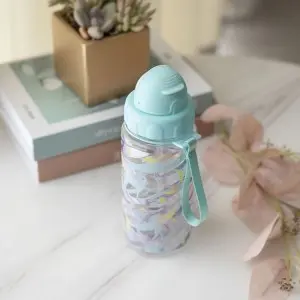Plastic bottles have become an integral part of our daily lives due to their convenience and versatility. However, the impact of plastic waste on the environment cannot be ignored. Recycling plastic bottles is often touted as the solution, but can all plastic bottles really be recycled? In this blog post, we explore the intricacies of plastic bottle recycling and take an in-depth look at the different types of plastic bottles that exist.
Learn about the different types of plastic bottles:
Contrary to popular belief, not all plastic bottles are created equal when it comes to recycling. They are made from different types of plastic, each with its own properties and recyclability. The most commonly used bottle plastics are polyethylene terephthalate (PET) and high-density polyethylene (HDPE).
1. PET bottle:
PET bottles are usually clear and lightweight and are commonly used for water and soda drinks. Fortunately, PET has excellent recycling characteristics. After being collected and sorted, PET bottles can be easily washed, broken, and processed into new products. As such, they are highly sought after by recycling facilities and have a high recovery rate.
2. HDPE bottle:
HDPE bottles, commonly found in milk jugs, detergent containers and shampoo bottles, also have good recycling potential. Due to their higher density and strength, they are relatively easier to recycle. Recycling HDPE bottles involves melting them to form new products such as plastic lumber, pipes or recycled plastic containers.
Challenges of recycling plastic bottles:
While PET and HDPE bottles have relatively high recycling rates, not all plastic bottles fall into these categories. Other plastic bottles, such as polyvinyl chloride (PVC), low-density polyethylene (LDPE) and polypropylene (PP), present challenges during recycling.
1. PVC bottle:
PVC bottles, often used in cleaning products and cooking oils, contain harmful additives that make recycling difficult. PVC is thermally unstable and releases toxic chlorine gas when heated, making it incompatible with traditional recycling processes. Therefore, recycling facilities usually do not accept PVC bottles.
2. LDPE and PP bottles:
LDPE and PP bottles, commonly used in squeeze bottles, yogurt containers and medicine bottles, face recycling challenges due to low demand and market value. While these plastics can be recycled, they are often downcycled into lower quality products. To increase their recyclability, consumers must actively seek out recycling facilities that accept LDPE and PP bottles.
In conclusion, not all plastic bottles are equally recyclable. PET and HDPE bottles, commonly used in beverage and detergent containers respectively, have high recycling rates due to their desirable properties. On the other hand, PVC, LDPE and PP bottles present challenges during the recycling process, limiting their recyclability. It is crucial for consumers to understand the different types of plastic bottles and their recyclability to make environmentally friendly choices.
In order to curb the plastic waste crisis, our reliance on single-use plastic bottles must be completely reduced. Choosing reusable alternatives like stainless steel or glass bottles, and being active in recycling programs can make a big contribution to a more sustainable future. Remember, every small step towards responsible plastic consumption can make a huge difference to the health of our planet.
Post time: Aug-11-2023
